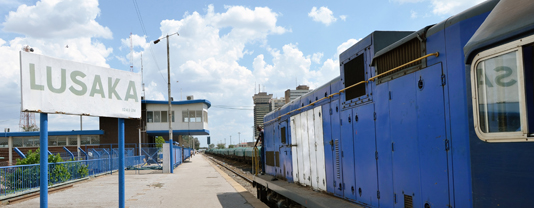A market with enormous potential and many interesting projects. Stronger franchises than in the past and a policy which focuses on rail transport corridors between States are what is needed to revive the service.
For decades Africa has been on the fringes of the world rail market. But for a few years now we have been witnessing an important reversal of trend which has made this continent, and certain of its geographical areas in particular, one of the world’s most dynamic and interesting markets.
There are basically two reasons for this: on the one hand globalization of the economy has led to a greater interest in the enormous mineral deposits dotted all over Africa, while on the other, the growth in population and the start, in many of its countries, of significant economic development (with a growing GDP despite the overall world economic crisis) have made it necessary to develop and modernize the rail networks, in many cases reduced to mere ghosts of the past. A recent survey carried out by the German consultancy company, SCI Verkehr, underlines this trend: if one takes a look at the whole of Africa, the overall extent of the rail network, which totalled 82,100 km in 2011, should, thanks to the numerous projects put forward and in some cases already underway, have reached a total of 96,360 km by 2017. Of course, there is no shortage of problems. These include lack of adequate funding to pay for the projects, privatizations which in various cases have returned very poor results, not to mention insufficient numbers of specialized technicians and engineers.
To this we can add the political instability afflicting vast areas of the continent: the troubles which over the last few months have been affecting the countries overlooking the Mediterranean Sea for example, have put the brakes on numerous railway infrastructure projects.
Full article is available only for registered users.
Click the link below to download pdf version of Railway Engineering
